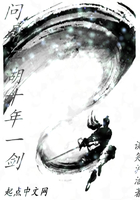When this officer had concluded his deposition, Colomba, half-distracted, cast herself at his feet, and besought him, by all he held most sacred, to say whether he had not left the mayor alone for a single moment. After a certain amount of hesitation, the man, who was evidently affected by the young girl's excitement, admitted that he had gone into the next room to fetch a sheet of foolscap, but that he had not been away a minute, and that the mayor had talked to him all the time he was groping for the paper in a drawer. Moreover, he deposed that when he came back the blood-stained note-book was still on the table, in the very place where the mayor had thrown it when he first came in.
Monsieur Barricini gave his evidence with the utmost coolness. He made allowances, he said, for Mademoiselle della Rebbia's excitement, and was ready to condescend to justify himself. He proved that he had spent his whole evening in the village, that his son Vincentello had been with him in front of the house at the moment when the crime was committed, and that his son Orlanduccio, who had had an attack of fever that very day, had never left his bed. He produced every gun in his house, and not one of them had been recently discharged. He added, that, as regarded the note-book, he had at once realized its importance; that he had sealed it up, and placed it in the hands of his deputy, foreseeing that he himself might be suspected, on account of his quarrel with the colonel. Finally, he reminded the court that Agostini had threatened to kill the man who had written a letter in his name, and he insinuated that this ruffian had probably suspected the colonel, and murdered him. Such a vengeance, for a similar reason, is by no means unprecedented in the history of brigandage.
Five days after Colonel della Rebbia's death, Agostini was surprised by a detachment of riflemen, and killed, fighting desperately to the last. On his person was found a letter from Colomba, beseeching him to declare whether he was guilty of the murder imputed to him, or not. As the bandit had sent no answer, it was pretty generally concluded that he had not the courage to tell a daughter he had murdered her father.
Yet those who claimed to know Agostini's nature thoroughly, whispered that if he had killed the colonel, he would have boasted of the deed.
Another bandit, known by the name of Brandolaccio, sent Colomba a declaration in which he bore witness "on his honour" to his comrade's innocence--but the only proof he put forward was that Agostini had never told him that he suspected the colonel.
The upshot was that the Barricini suffered no inconvenience, the examining magistrate was loud in his praise of the mayor, and the mayor, on his side, crowned his handsome behaviour by relinquishing all his claims over the stream, concerning which he had brought the lawsuit against Colonel della Rebbia.
According to the custom of her country, Colomba improvised a /ballata/ in presence of her father's corpse, and before his assembled friends.
In it she poured out all her hatred against the Barricini, formally charged them with the murder, and threatened them with her brother's vengeance. It was this same /ballata/, which had grown very popular, that the sailor had sung before Miss Lydia. When Orso, who was in the north of France, heard of his father's death, he applied for leave, but failed to obtain it. A letter from his sister led him to believe at first in the guilt of the Barricini, but he soon received copies of all the documents connected with the inquiry and a private letter from the judge, which almost convinced him that the bandit Agostini was the only culprit. Every three months Colomba had written to him, reiterating her suspicions, which she called her "proofs." In spite of himself, these accusations made his Corsican blood boil, and sometimes he was very near sharing his sister's prejudices. Nevertheless, every time he wrote to her he repeated his conviction that her allegations possessed no solid foundation, and were quite unworthy of belief. He even forbade her, but always vainly, to mention them to him again.
Thus two years went by. At the end of that time Orso was placed on half-pay, and then it occurred to him to go back to his own country--not at all for the purpose of taking vengeance on people whom he believed innocent, but to arrange a marriage for his sister, and the sale of his own small property--if its value should prove sufficient to enable him to live on the Continent.













